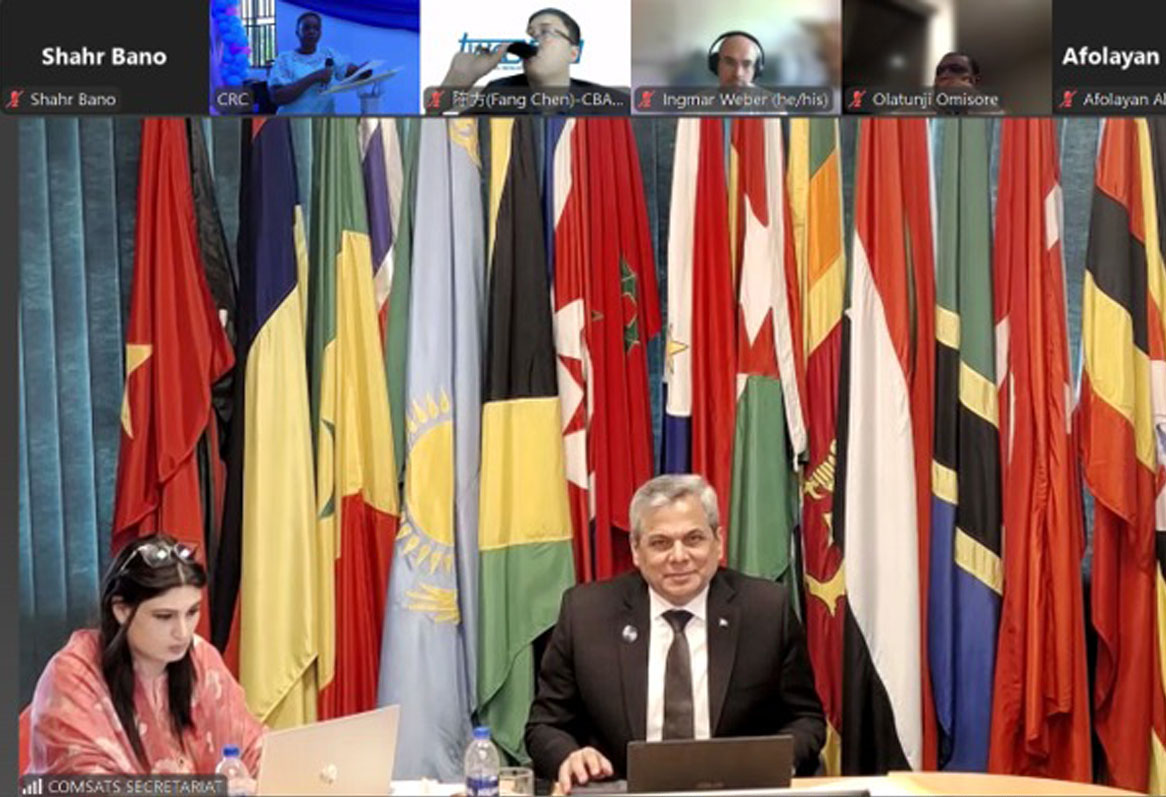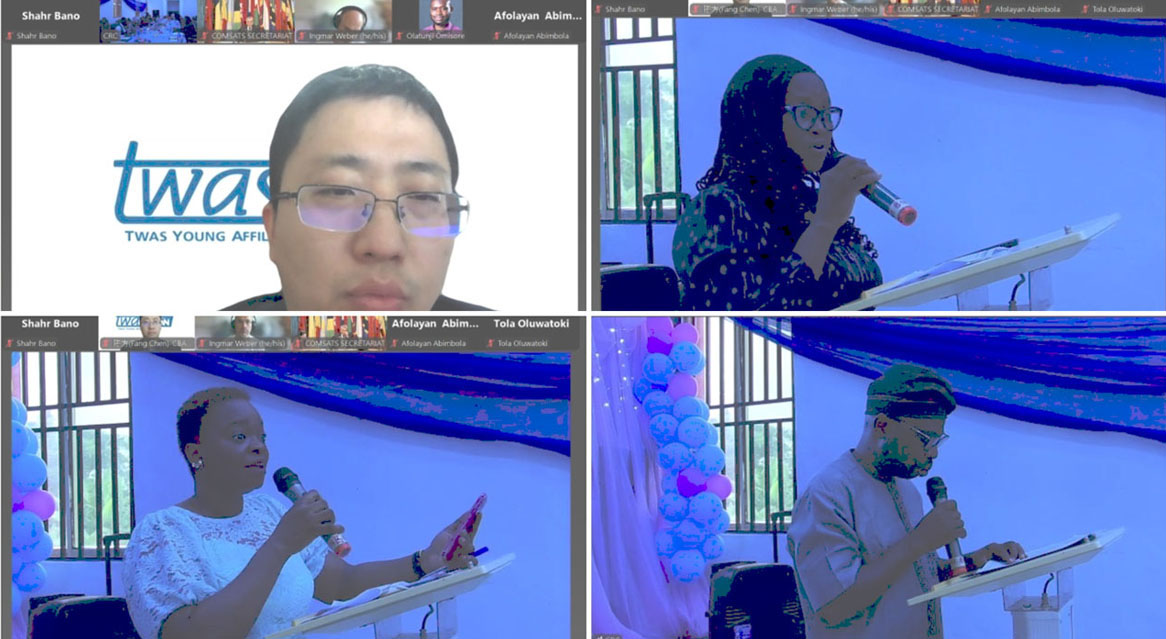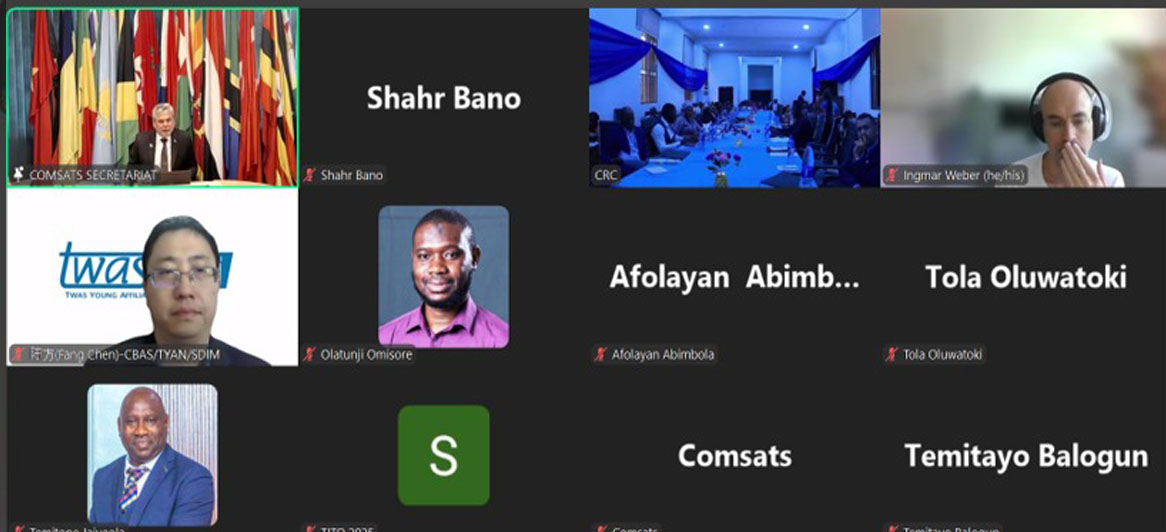18 June 2025. In the spirit of South-South cooperation for technological advancement and data governance, the Commission on Science and Technology for Sustainable Development in the South (COMSATS) actively collaborated in the 4th African Symposium on Big Data, Analytics and Machine Intelligence, held concurrently with the 18th International Thematic Workshop of the TWAS Young Affiliates Network (TYAN).

The 3-day event, held at the Federal University of Technology Akure (FUTA), Nigeria, was jointly organized by a consortium of institutions, including TYAN, Nigeria Computer Society (NCS), TWAS Sub-Saharan Africa Regional Partner (TWAS-SAREP), Automated Contact Tracing Research Group (ACTRG), GigaScience Press, and Inspire-Shine Technovative Laboratories.
The Symposium was participated by the leading domain experts, policymakers, early-career researchers, and technologists to deliberate on the strategic deployment of Artificial Intelligence (AI), Big Data, and Machine Learning (ML) as critical enablers of sustainable development, climate resilience, and next-generation digital governance.

COMSATS, as an intergovernmental organization committed to fostering South-South cooperation in science, technology, and innovation, supported the event through targeted with substantive contribution. The initiative provided an essential platform for dialogue, capacity-building, and collaborative innovation that underscores the organization’s developmental mandate.

Ambassador Dr. Mohammad Nafees Zakaria, Executive Director COMSATS, in his inaugural speech underlined the urgency of harnessing the exponential growth in data—generated across diverse sectors such as healthcare, financial services, climate systems, discusses and diagnostics, and digital commerce—for actionable insights and policy formulation. “In the era of ubiquitous data, true value emerges only when it is processed through robust analytical frameworks, aligned with privacy protection and regulatory oversight,” Dr. Zakaria remarked.

Citing the multi-sectoral application of the latest technologies by COMSATS’ Centres of Excellence—including in telehealth, climate resilience, and emerging domains such as nano-technology and electric vehicle systems—Dr. Zakaria invited greater engagement from African Member States to benefit from COMSATS’ skill-development programmes in areas such as AI, Web and Mobile Development, e-Commerce, Business Intelligence, and Software Quality Assurance.

High-standing speakers from across the African continent and beyond, including Germany, the United Kingdom, the United States, Egypt, South Africa, and Morocco figured at the symposium. The thematic deliberations spanned sustainable healthcare, smart urban infrastructure, climate-smart agriculture, fintech, data security, and food systems—all framed within the broader imperative of leveraging digital tools for equitable and resilient development.
Executive Director COMSATS expressed appreciation to Professor Bolanle Ojokoh of FUTA, a distinguished member of COMSATS’ Technical Advisory Committee, for her instrumental role in strengthening this strategic collaboration.
Prof. Bolanle and other Speakers lauded COMSATS support to the Symposium and pivotal it is playing to keep pace with fast developing technologies.




